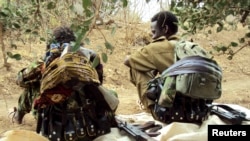The talks, which began Monday and are being mediated by Kenya and Norway, come at a critical time for Ethiopia, which has experienced a rise in ethnic tensions and violence in recent years.
The discussions are receiving a generally positive reception, with many expressing hope they will ultimately bring an end to the prolonged period of conflict and instability in Ethiopia.
Many analysts, including Abbas Mwalimu, a lecturer at the Tanzania Center for Foreign Relations, are closely monitoring the situation. Mwalimu has been following the conflict and said the talks are a step in the right direction, but more needs to be done to achieve lasting peace and stability in Ethiopia.
There will be a chance for success, Mwalimu said, but even greater success can be achieved if the two sides choose to revisit the Constitution and revise it to unify Ethiopia.
He said the current Constitution, which allows for regions to have their own governance, is what fuels the desire for separatism among the people.
As tensions rise over the incorporation of regional military fighters into the national army, Ibrahim Rahbi, a regional analyst, has suggested the Ethiopian government must carefully manage the process to prevent further conflicts.
Rahbi said the Ethiopian government's move to integrate regional fighters into the national army has created a lot of tension, as each of the country's 11 regions has its own fully governed representatives, including armed forces.
He added that the government will need to find a way to work together by removing weapons from all regions at once.
When asked for a comment, Charles Hillary, the chief spokesperson of the Zanzibar government, stated that the peace talks between the Ethiopian government and OLA are being conducted behind closed doors, and they do not have any information about the ongoing meetings. He further clarified that Zanzibar is only providing a venue for the talks and is not part of the negotiations.
The Ethiopian government's efforts to negotiate peace with the OLA have received a mixed reaction.
While some applaud the talks as a step toward resolving the conflict, others, such as the American-Ethiopian Public Affairs Committee (AEPAC), have called for a guaranteed cessation of violence by the OLA before meaningful negotiations can take place.
In a statement Wednesday, the AEPAC said, "Negotiations cannot meaningfully take place, while the population and many communities in Ethiopia still face the risk of attack by such forces. Primarily, there must be a guaranteed cessation of all hostile acts by OLA-Shene, which has constantly committed crimes against humanity and engaged in the massacre of innocent unarmed civilians."
In recent years, the OLA has grown in numbers, but some experts assert it lacks the organization and weaponry to pose a serious threat to the Ethiopian government.
The Oromo region has experienced ethnic violence, and while the government has accused the OLA of involvement, the group denies responsibility. The government's heavy-handed response to the conflict has only fueled bitterness among the Oromo people.
Meanwhile, the talks are expected to continue for several days.








